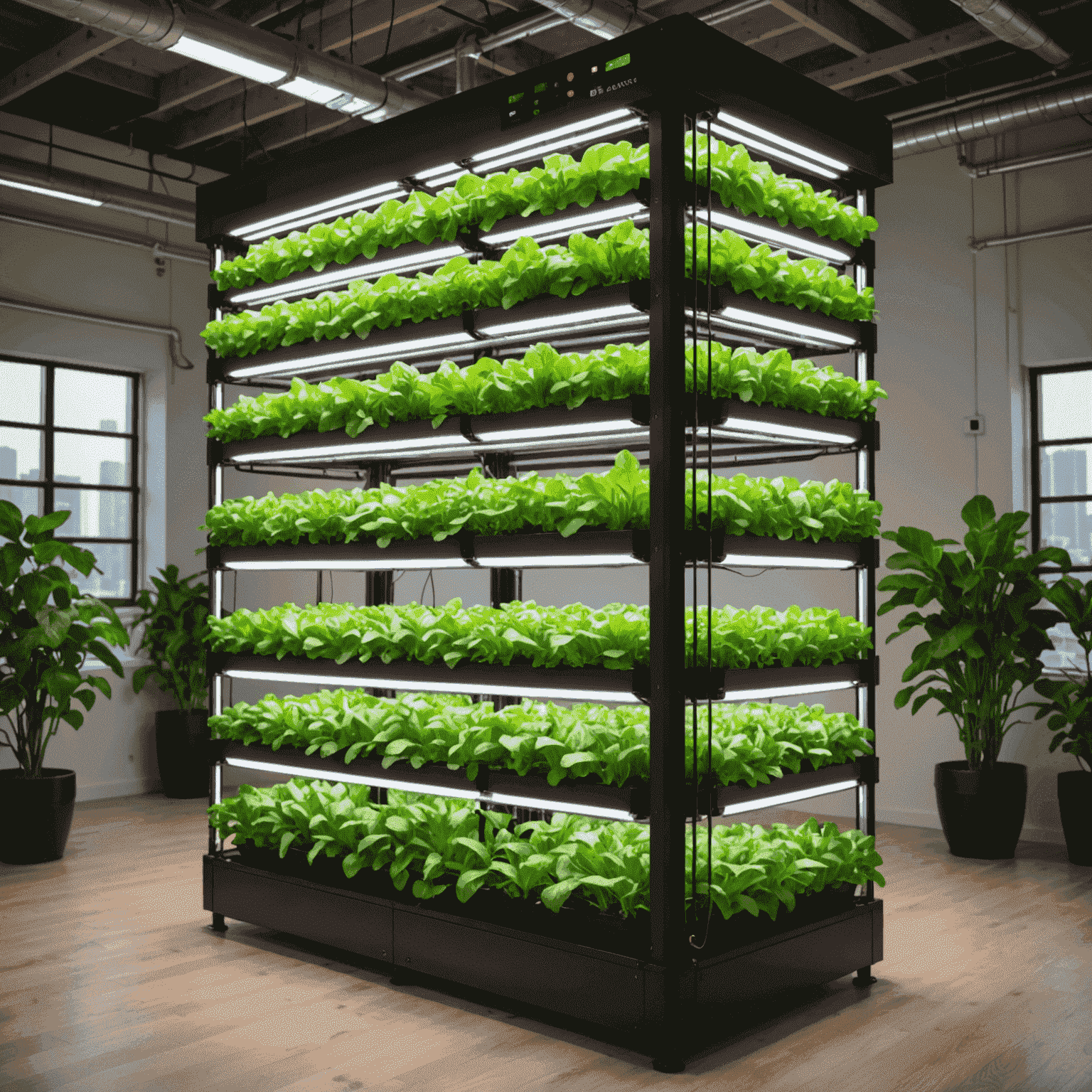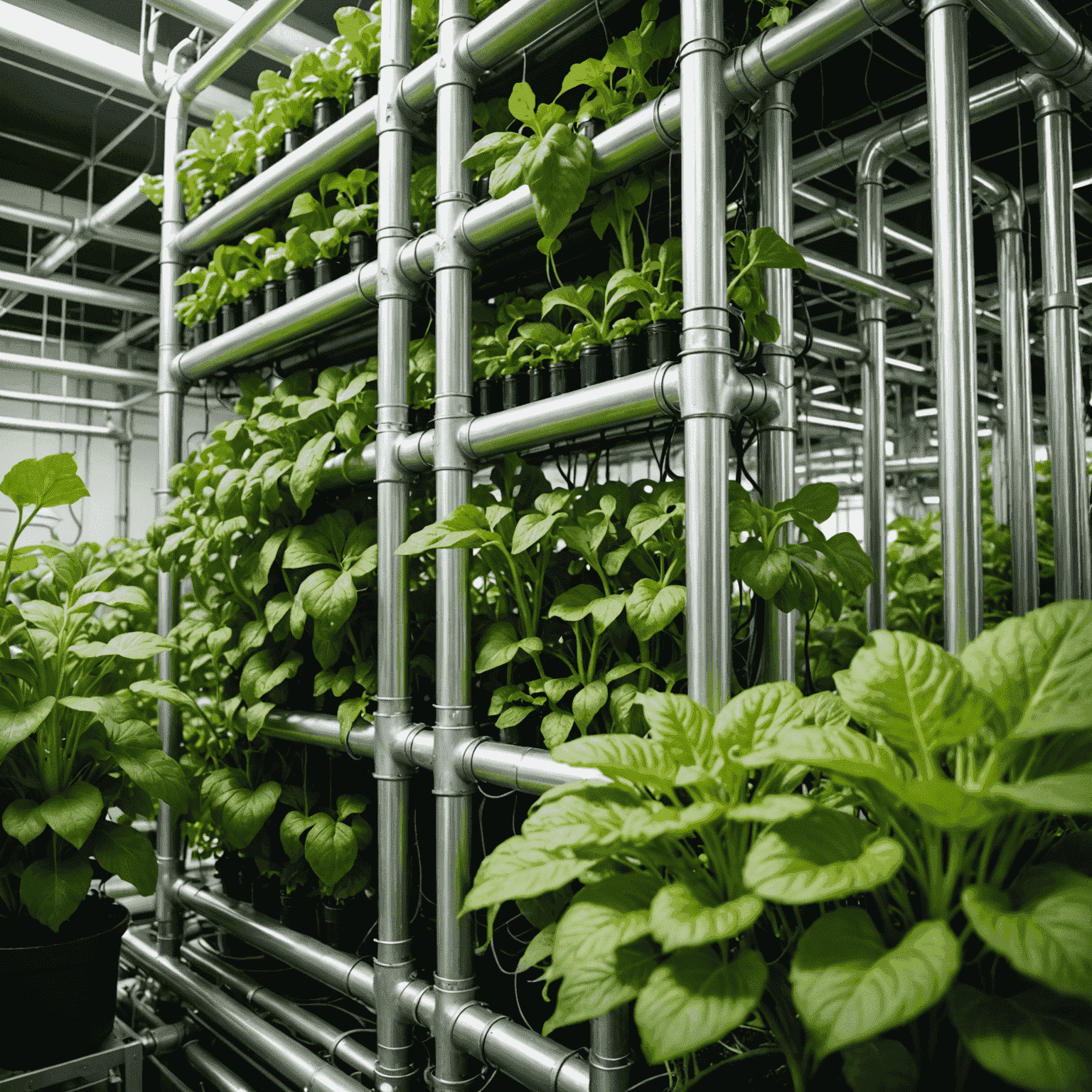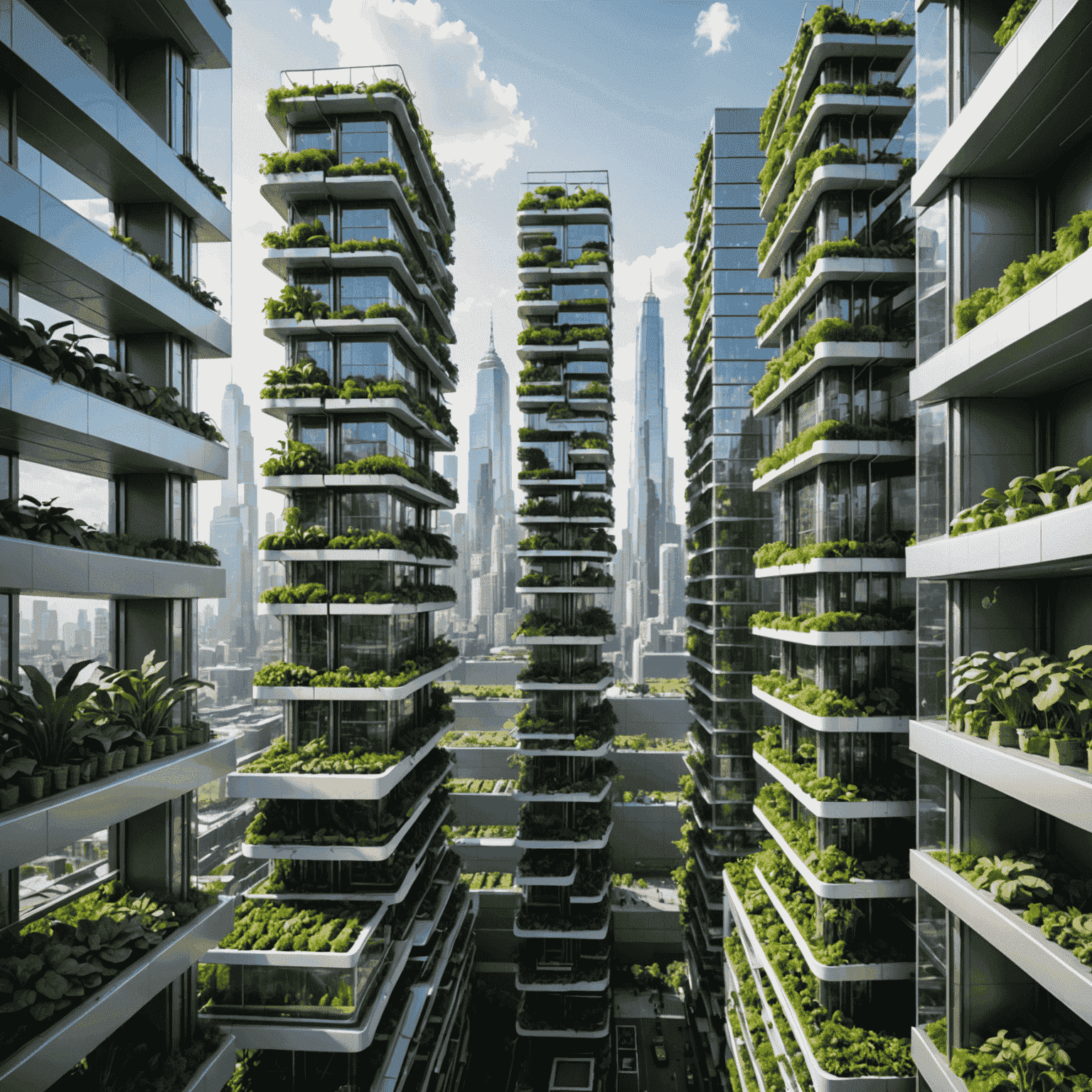Vertical Farming Breakthrough: Hydroponic System Boosts Urban Crop Yield by 40%

In a groundbreaking development for urban agriculture, a new hydroponic system has demonstrated the ability to increase crop yields by an impressive 40% in city environments. This innovative foodtech solution is set to revolutionize the way we approach food production in densely populated areas.
The Power of Precision Farming in Vertical Spaces
The newly developed hydroponic system, a result of collaborative efforts between agritech innovators and urban planning experts, leverages cutting-edge technology to maximize crop output in limited spaces. By combining AI-driven climate control, LED lighting optimized for plant growth, and a nutrient delivery system fine-tuned for each crop variety, this vertical farming solution addresses many of the challenges faced by traditional urban agriculture methods.
Key Features of the Breakthrough System:
- Multi-tiered growing platforms that maximize vertical space utilization
- Precision nutrient delivery system reducing water usage by up to 95% compared to traditional farming
- AI-powered environmental controls ensuring optimal growing conditions 24/7
- Energy-efficient LED lighting customized to specific crop requirements
- IoT sensors for real-time monitoring and data-driven decision making

Implications for Urban Food Security
This advancement in vertical farming technology has far-reaching implications for urban food security and sustainable agriculture. By significantly increasing crop yields in city environments, the system offers a promising solution to feed growing urban populations while reducing the carbon footprint associated with long-distance food transportation.
Dr. Emily Chen, lead researcher on the project, commented, "Our goal was to create a system that not only increases productivity but also integrates seamlessly into urban infrastructure. This breakthrough represents a significant step towards self-sufficient cities and a more sustainable food future."
Benefits of Urban Vertical Farming:
- Year-round crop production regardless of outdoor weather conditions
- Significant reduction in water usage and elimination of chemical pesticides
- Shorter supply chains leading to fresher produce and reduced food waste
- Creation of green jobs in urban areas
- Potential for repurposing unused urban spaces for food production

Looking Ahead: The Future of Urban Agriculture
As cities continue to grow and climate change poses increasing challenges to traditional agriculture, innovations like this hydroponic system are becoming crucial. The success of this project paves the way for further advancements in urban farming technologies, potentially leading to a new era of sustainable, locally-sourced food production.
With ongoing research and development in agritech solutions, we can expect to see even more efficient and adaptable vertical farming systems in the near future. These advancements will play a vital role in creating resilient, self-sustaining urban ecosystems capable of meeting the nutritional needs of their inhabitants while minimizing environmental impact.
As we continue to push the boundaries of what's possible in urban agriculture, it's clear that the future of food production is not just growing outward, but upward as well.